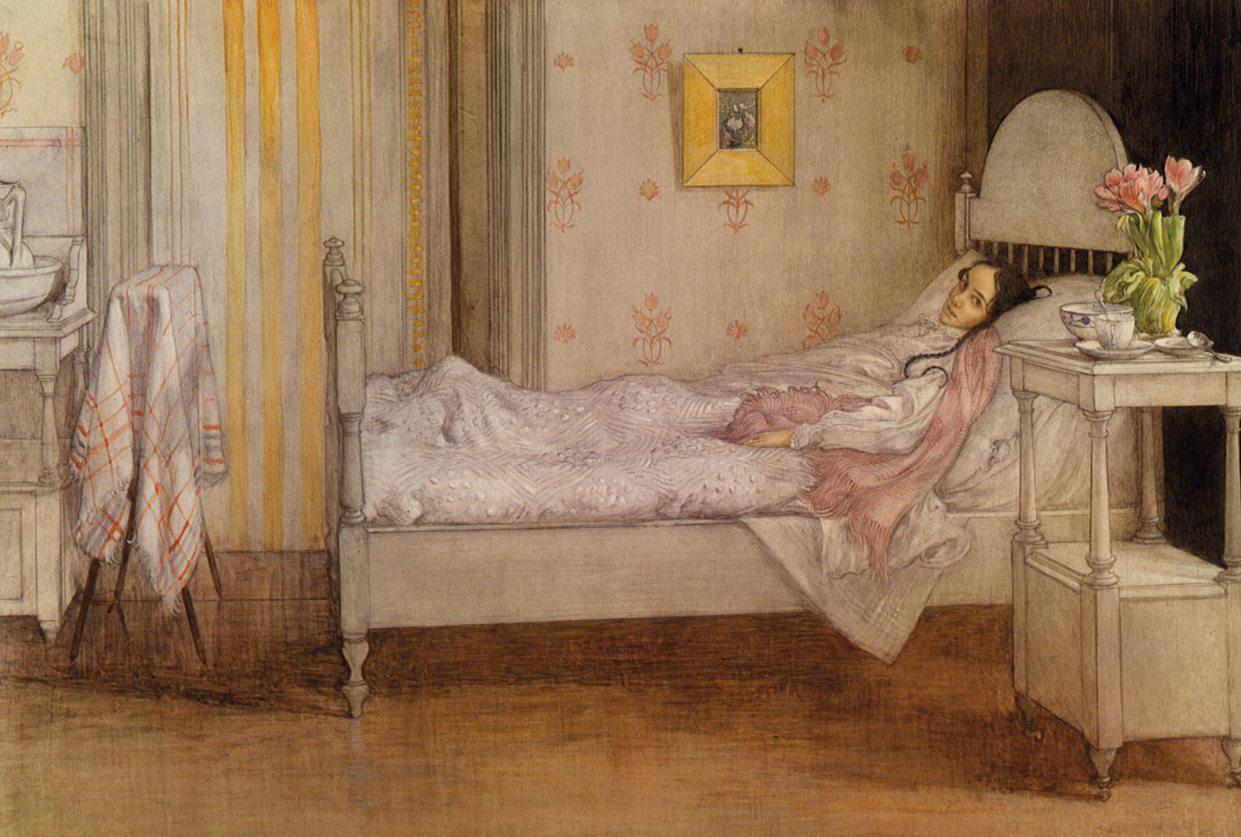Essayer OR - Gratuit
The LOST ART OF CONVALESCENCE
Fairlady
|July/August 2022
EVEN WHEN WE'RE SERIOUSLY ILL, WE NO LONGER TAKE THE TIME REALLY TO REST AND RECOVER; WE RUSH BACK TO WORK AS SOON AS POSSIBLE. BUT WITH THE ARRIVAL OF LONG COVID, WE MAY BE FORCED TO RETHINK RECUPERATION.

Once upon a time, when you took ill with something like tuberculosis, suffered a wound in a great war or had a mental breakdown, the healing process was gradual. You would typically move on from a place of high care after the medical crisis to a place of convalescence where you could be supported and cared for.
In 18th-century England, the wealthy would travel to spa towns like Bath or mountain retreats in Europe to get their prescribed dose of fresh air, nature walks and dips in the freezing ocean. And once people realised that returning to crowded slums in filthy industrial cities compromised the recovery of the poor, reformers and philanthropists created convalescent homes in the country or by the sea, where at least some could recuperate with fresh air, wholesome food and rest, as described by Scottish GP Dr Gavin Francis in his book, Recovery: The Lost Art of Convalescence (Wellcome Collection).
Recovery, he says, is a separate therapeutic process that deserves attention - the recognition that it takes time to rebuild ourselves, that not everything can be solved instantly with a pill or a high-tech procedure.
"The medicine I was trained in often assumes that once a crisis has passed, the body and mind find ways to heal themselves there's almost nothing more to be said on the matter. But after nearly 20 years as a GP, I've often found that the reverse is true: guidance and encouragement through the process of recovery can be indispensable.
Cette histoire est tirée de l'édition July/August 2022 de Fairlady.
Abonnez-vous à Magzter GOLD pour accéder à des milliers d'histoires premium sélectionnées et à plus de 9 000 magazines et journaux.
Déjà abonné ? Se connecter
PLUS D'HISTOIRES DE Fairlady

Fairlady
...And this just in
New treats, treatments, products and good things to know right now
2 mins
January/February 2026

Fairlady
Emily in Prada
Emily Blunt slips back into the stilettos of everyone's favourite Emily in The Devil Wears Prada 2. From stuttering schoolgirl to Hollywood's queen of conflicted women, she has proven she's in a league of her own.
9 mins
January/February 2026

Fairlady
50 BUDGET HEROES
Many of us are feeling the pinch at this time of year - which is why we scoured the socials and the shelves for 50 of the best word-of-mouth bang-for-your-buck beauty buys.
9 mins
January/February 2026

Fairlady
ULTERIOR motif
Summer is the perfect time to bring playful patterns into your wardrobe, from bold mixed prints to three-dimensional embroidery and appliqué.
2 mins
January/February 2026

Fairlady
SIMPLE, SEASONAL, SUPERB
CHICKEN WITH ARTICHOKES, LEMON, CHILLI & DILL
7 mins
January/February 2026

Fairlady
THE SPENDING DIARIES
Three women opened their wallets for us and gave us a peek at how much they spend in a month. The result? Funny, raw and surprisingly revealing snapshots of how money shapes identity, survival and joy.
9 mins
January/February 2026

Fairlady
RISE of the MACHINES
AI - it's all anyone talks about these days. Businesses are pushing it into our daily lives at an alarming rate and, yes, ChatGPT is handy for presentations. But before you embrace large language models as your new life coach/ assistant/significant other, it's worth looking at some of the red flags and ripple effects.
16 mins
January/February 2026

Fairlady
WHEN THE WRONG PARENT DIES FIRST
I often think about how different my life would have been had my mother outlived my father, rather than the other way around.
6 mins
January/February 2026

Fairlady
What's your ATTACHMENT STYLE?
According to psychologists, your bond with your primary caregivers in childhood might be impacting your life as an adult, the patterns in your relationships, and even your career.
14 mins
January/February 2026
Fairlady
The rule is simple: Save first, then spend.
Easy Does It by EasyEquities
1 mins
January/February 2026
Translate
Change font size
